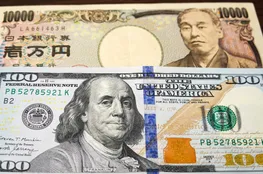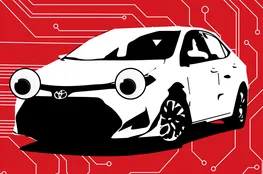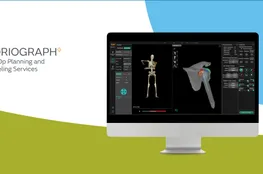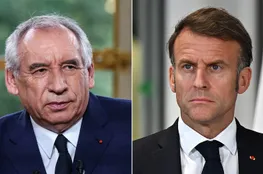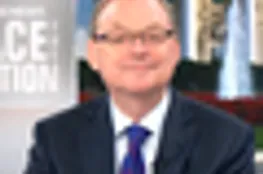In this podcast, Motley Fool analyst David Meier and host Ricky Mulvey discuss: On Holding 's blistering sales growth. Why pharma investors aren't reacting to President Donald Trump's executive order on drug prices. Then, Motley Fool personal finance expert Robert Brokamp joins Ricky to discuss why investors should consider buying individual bonds. To catch full episodes of all The Motley Fool's free podcasts, check out our podcast center. When you're ready to invest, check out this top 10 list of stocks to buy. A full transcript is below. This podcast was recorded on May 12, 2025.
Advertisement... Ricky Mulvey: Does Alphabet deserve a grocery store multiple? You're listening to Motley Fool Money. I'm Ricky Mulvey, joined today by the smiling David Meier. David, thanks for being here. What are you smiling about? What's so funny? David Meier: Oh, it's all good today. All good. Ricky Mulvey: Good. Just making sure I don't look funny or anything. That's why we do a audio only podcast for today. Politics keeps mixing with markets, and we have some earnings from a fast growing apparel later in this segment, Dylan and Ja-mo hit the trade deal-ish trade agreement question mark between the US and China yesterday. But there's another move from the White House that could have significant implications for markets. President Trump signing an executive order that Americans must get a "Most favored nation price for prescription drugs." David, when I saw this, my first reaction was sweet. You know what? I bet the big drug makers stocks are going to dive on this. They did not flinch. The US is where a lot of their profits come from. What's going on here? David Meier: The reason they didn't flinch is because the market doesn't believe that those profits are going away. It's as simple as that. If we look a little bit under the hood at what the executive order actually says, it does lay out some cases where other countries around the world pay lower prices than we do in the US. They negotiate differently. The market for drugs is way more open in the United States than it is in other countries. Governments tend to negotiate on behalf of their people because they're the ones making the purchases. They have some negotiating power. We here in the United States tend to let markets determine prices. There are other players. There's PBMs and things like that. But this is basically the market saying that the US markets will withstand higher prices. Basically, with the stocks not really moving on the news, the market says, "Well, we look ahead and we don't see how you're going to do this." Basically, the other thing that the executive order said was, "Health and Human Services Secretary, go out and put together a plan in 30 days for what you think the prices will be." There's a negotiation that's going to happen in between, so we'll see what happens, but as of right now, I think that's what the market is saying. Ricky Mulvey: Well, the pharma lobbyists are saying something else, David, they're certainly sweating a little bit. According to Bloomberg, the brand drug lobby, PHRMA my old employer had an emergency call on Sunday and said that this could cost the industry $50 billion. They are saying that this executive order could make it more difficult for the industry to do business. David Meier: The industry is worried about the long-term impact of this executive order and whether it will ultimately lead to higher drug prices.
Ricky Mulvey: Now, let's talk about how investors can actually get involved in the bond market. Robert Brokamp: You can buy savings bonds, treasuries, i bonds, treasury inflation protected securities, otherwise known as TIPS, directly from the government, @treasurydirect.gov. It's a really convenient way to buy treasuries. Unfortunately, it can only be done in taxable accounts because the government isn't set up to serve as a custodian for IRAs. But the consolation here might be that interest from treasuries is actually free of state and local income taxes, so that makes them somewhat more compelling. Also, in the case of treasuries and tips, you don't actually buy the security immediately, knowing the exact yield you'll receive, rather, you're basically signing up to participate in an upcoming auction. Once the auction is complete, you'll be informed of the rate you'll receive. Ricky Mulvey: Finally, you can get the best of both worlds with defined maturity ETFs. Robert Brokamp: If you've been listening so far, you can see that buying individual bonds requires more education and effort than just buying a bond fund. Fortunately, there's a type of bond ETF that offers most of the benefits of buying individual bonds. These are known as defined maturity or target maturity bond ETFs. These are funds that only own bonds mature in the same year, and that year will be identified in the name of the ETF. Toward the end of that year, after all the bonds have matured, you'll just have a bunch of cash. The cash will be distributed to the shareholders and the ETF ceases to be. The two main issuers of this type of ETFs are Invesco, and they call them BulletShares or iShares, and they call them I-Bonds, but that's not to be confused with the inflation-adjusted bonds issued by Uncle Sam. You can use these ETFs to invest in all kinds of bonds, corporates, munis, TIPS, high yield bonds. Both the Invesco and iShares websites have tools that can help you build a bond ladder with these ETFs. You have a certain amount coming due each year, probably particularly attractive to retirees. Like all bond funds, these ETFs are going to go up and down in value depending on what's going on with interest rates in the economy, but they should return close to their initial share price, that is the price of the ETF on its very first day once the fund matures. But there are no guarantees, and this is more likely if you're choosing an ETF that invests in safer bonds, less likely if you're choosing an ETF that invests in high-yield or junk bonds. But the bottom line is that with these ETFs, you can get the ease and diversification of a bond fund, yet a measure of the predictability about what the ETF will be in the future, similar to what you'd get from an individual bond, in other words, most of the best of both worlds. Ricky Mulvey: As always, people on the program may have interests in the stocks they talk about in the Motley Fool may have formal recommendations for or against, so don't buy or sell stocks based solely on what you hear personal finance content, follows Motley Fool editorial standards, and we not approved by advertisers. Advertisements are sponsored content and provided for informational purposes only to see our full advertising disclosure, please check out our show notes. Motley Fool only picks products that it would personally recommend to friends like I'm Ricky Mulvey. Thanks for listening. We'll be back tomorrow.



